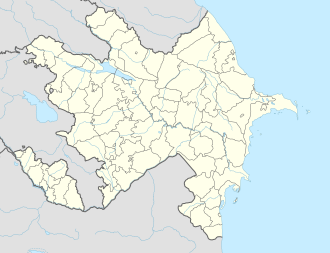Buzovna | |
|---|---|
Municipality | |
 | |
| Coordinates: 40°30′58″N50°06′59″E / 40.51611°N 50.11639°E | |
| Country | |
| City | Baku |
| Raion | Əzizbəyov |
| Population (2008) [1] | |
• Total | 26,283 |
| Time zone | UTC+4 (AZT) |
| • Summer (DST) | UTC+5 (AZT) |
Buzovna (also, Busovny, Busowny, Buzouvna, and Buzovny) is a settlement and municipality in Baku, Azerbaijan.[ citation needed ] It has a population of 26,283.
















